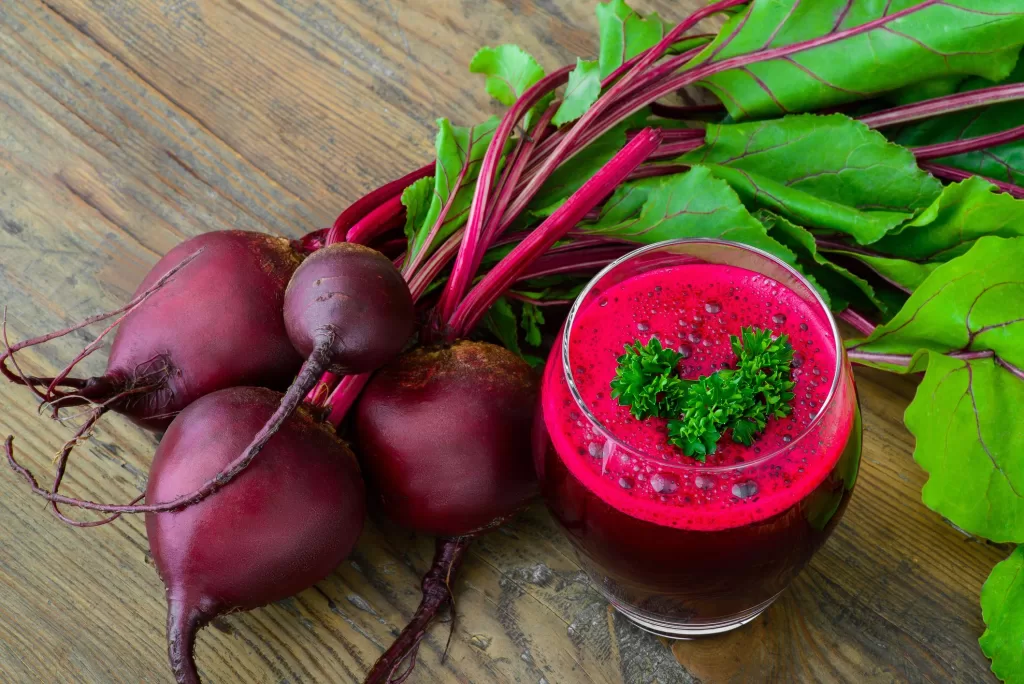Origin of Beetroot
The exact origin of beetroot (also known as “beets” or “red beets”) is not entirely clear, but it is believed to have originated in the Mediterranean region.
The plant has been cultivated for thousands of years for its edible roots and leaves, and has been an important food source in many different cultures.

Beetroot was first domesticated by the ancient Romans, who grew it for its medicinal properties, as well as for food. It was also used as a natural dye for clothing and other materials. From there, beetroot spread throughout Europe and eventually to other parts of the world.
Benefits Both Male and Female
Beetroot, also known as beets, is a root vegetable that is highly nutritious and packed with health benefits. Some of the benefits of beetroot for both males and females include:
- Improved cardiovascular health: It contains nitrates that help to relax blood vessels, reduce blood pressure, and improve blood flow to the heart.
- Can help reduce the risk of heart disease and stroke.
- Boosted athletic performance: Enhance athletic performance and endurance by improving oxygen uptake and reducing fatigue during exercise.
- Increased brain function:Contains nitrates that improve blood flow to the brain, which can enhance cognitive function, improve memory, and prevent cognitive decline.
- Improved digestion: Beetroot is high in fiber, which helps to promote healthy digestion, prevent constipation, and reduce the risk of colon cancer.
- Anti-inflammatory properties: Beetroot contains antioxidants and anti-inflammatory compounds that can help reduce inflammation in the body, improve joint health, and reduce the risk of chronic diseases.
- Improved sexual function: Rich in nitrates, which can improve blood flow to the genitals and enhance sexual function in both men and women.
- Improved skin health: Beetroot is rich in antioxidants, which can help to reduce the signs of aging, improve skin texture and tone.
Overall, incorporating beetroot into your diet can provide numerous health benefits for both males and females.
Side Effects
- Beetroots are generally safe to consume and are known to have many health benefits. However, consuming large amounts of beets or beet juice may cause some side effects in some individuals.
- Beeturia, which is the reddish color of urine or stools after eating beets. This is due to the presence of a pigment called betalain in beets.
- Some people may also experience gastrointestinal side effects such as bloating, gas, and diarrhea after consuming beets. This may be due to the high fiber content in beets, which can cause digestive discomfort in some individuals.
- Beet juice may also interact with certain medications, such as blood pressure medication and medication for erectile dysfunction. Therefore, individuals who are taking these medications should consult with their healthcare provider before consuming beet juice.
- In rare cases, some individuals may experience symptoms such as hives, itching, and difficulty breathing. If you experience any of these symptoms after consuming beets, seek medical attention immediately.
- Overall, beets are a healthy and nutritious vegetable that can be consumed in moderation as part of a balanced diet.






